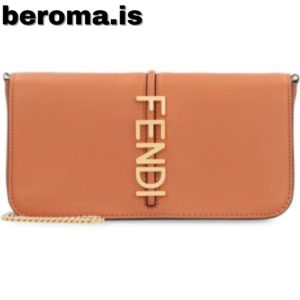 For fashion enthusiasts and luxury bag collectors, the allure of a Fendi Monster Bag is like the siren call to the sea voyager. With its audacious eye-catching design and status as a veritable cult item, the Monster Bag has become a prized possession among the elite and a coveted must-have for many. Yet, the steep price tag attached to these luxury items has given rise to a shadowy market of replicas that cater to the aspirational and budget-conscious shopper. In this blog post, we’ll explore the intricate web of Fendi Monster Bag replicas, considering the industry’s ethical and legal implications, offering advice on distinguishing between real and impostor, and examining the broader economic impact on the luxury sector.
For fashion enthusiasts and luxury bag collectors, the allure of a Fendi Monster Bag is like the siren call to the sea voyager. With its audacious eye-catching design and status as a veritable cult item, the Monster Bag has become a prized possession among the elite and a coveted must-have for many. Yet, the steep price tag attached to these luxury items has given rise to a shadowy market of replicas that cater to the aspirational and budget-conscious shopper. In this blog post, we’ll explore the intricate web of Fendi Monster Bag replicas, considering the industry’s ethical and legal implications, offering advice on distinguishing between real and impostor, and examining the broader economic impact on the luxury sector.
Fendi and the Iconic Monster Bag
Fendi, the luxury Italian fashion house, is synonymous with its heritage of opulence and innovation. The Monster Bag, an exemplar of Fendi’s playful inventiveness, boasts unique traits such as fur-laden monograms and whimsical creature-themed designs. Introduced in 2013, the Monster Bag quickly became a statement piece, gracing the arms of celebrities and socialites. But what happens when demand transcends the affordability for many?
The Replica Culture’s Furtive Emergence
The replica or ‘knock-off’ industry is a multibillion-dollar market that has penetrated every segment of the fashion world, masquerading the likes of Gucci, Chanel, and, of course, Fendi. The replica culture has become paradoxically a measure of a brand’s success and its potential for dilution. What does this say about consumer culture and the perceived worth of a label?
The Line Between Real and Replica
Exemplary craftsmanship and premium materials are at the core of Fendi’s luxury appeal. Discerning a real Fendi Monster Bag from a replica requires an eye for detail, an astute knowledge of the brand’s design language, and a familiarity with the retail specifications and packaging. We will dissect the fundamental differences and emulate the skill set of a seasoned authenticator.
The Ethical Quandaries of Ownership
The purchase and use of replica designer goods raise complex ethical questions. The luxury industry defends intellectual property rigorously, citing the significance of heritage, integrity, and the avoidance of contributing to a criminal enterprise. However, advocates of the replica market argue that it offers access to style and a sense of empowerment for those who are systematically excluded from the echelons of affluence.
Navigating the Legal Waters
The production and distribution of counterfeit goods are illegal activities that can have severe legal consequences for those involved. The fashion industry does not shy away from pursuing legal action, whether through trademark infringement lawsuits or active collaboration with law enforcement. This section will spotlight some landmark legal cases and highlight the repercussions for both sellers and buyers.
The Art of Replica Detection
With the replication techniques becoming increasingly sophisticated, spotting a fake has evolved into a forensic challenge. There are, however, indicators that can tip the scales in favor of authenticity. We will uncover the clues that are often overlooked by the untrained eye, such as stitching patterns, material quality, hardware, and even the weight distribution of the bag.
Where to Find Quality Replicas Online
For those who plan to venture into the murky waters of high-quality Fendi Monster Bag replicas, we will guide you through the treacherous terrain of online shopping. Sources, such as reputable sellers and review sites, will be dissected to empower you with the knowledge to make informed purchasing decisions.
The Economic Ripple Effect
The interplay between authentic luxury brands and their counterfeit counterparts is a delicate dance that affects not only the fashion industry’s bottom line but also its reputation. We will explore the wider economic implications, including the potential impacts on pricing, brand perception, and the sustainability of luxury fashion in an era where exclusivity struggles against the tide of accessibility.
Conclusion: Navigating with Integrity
In a world where the replica market thrives, education is key. Awareness of the legal and ethical landscapes is crucial for making conscientious choices. Understanding how to appreciate the craftsmanship behind an original luxury piece while acknowledging the allure of its more affordable doppelgängers can lead to a more fulfilling and satisfying relationship with the fashion we adore.
Fashion, at its essence, is an art form that should be celebrated and accessed in a manner that is respectful of its creators and the fabric of the industry. Whether you opt for the authentic Fendi experience or the nuanced world of replicas, may your choices reflect a balance between appreciation, individuality, and the ethical considerations of this intricate marketplace.